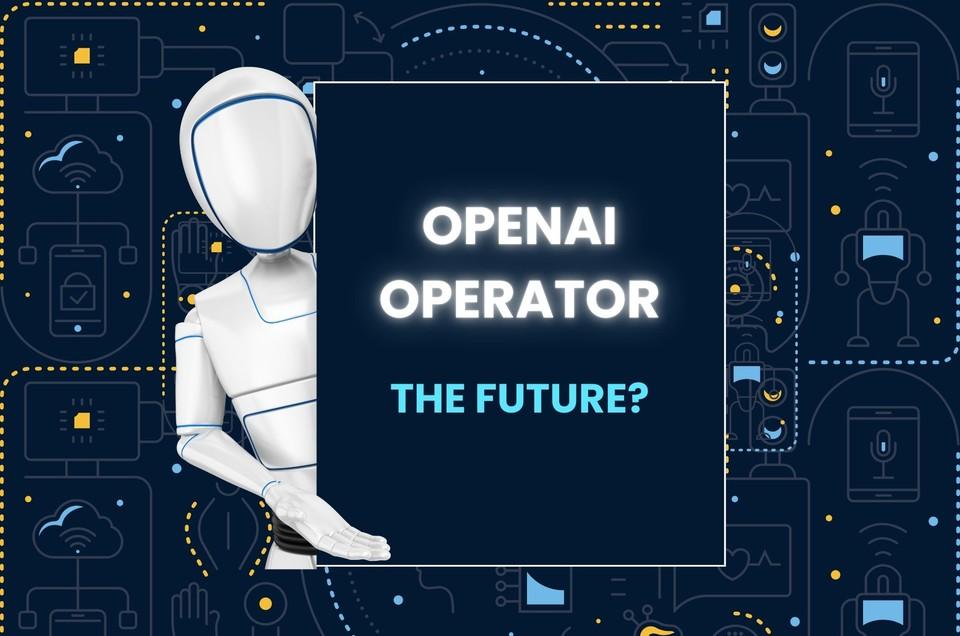Technology is changing fast, and OpenAI has just introduced something that could reshape how small businesses handle daily operations. Operator, an AI agent designed to work on a computer much like a human would, was just launched recently.
Unlike traditional AI assistants that respond to voice commands or text inputs, Operator can get on websites, click buttons, fill out forms, and even help with research. But what does this mean for you as a business owner? Is this the breakthrough that could free up hours of work, or are there risks to consider? I got those answers.
What is Operator?
OpenAI’s Operator is a computer-using AI agent (CUA) built on its latest GPT-4o model. Unlike a chatbot that simply provides text responses, Operator is designed to interact with digital environments just like a person would. It can browse the web, move a cursor, click on items, fill out forms, and complete various digital tasks.
Currently, Operator is available for users on OpenAI’s $200 per month ChatGPT Pro plan, and the company has already partnered with major businesses like Instacart, DoorDash, Uber, OpenTable, and Target to ensure seamless interaction. While still in a research phase, Operator represents a significant step toward AI-driven automation.
How Can Small Businesses Use Operator?
For small business owners, Operator could be a game-changer, helping to streamline daily tasks that take up valuable time. Here are some key areas I think this AI agent could be useful:
1. Automating Administrative Tasks
Administrative work is often a necessary but time-consuming part of running any business. Operator can handle routine digital tasks like:
- Scheduling appointments and making reservations via platforms like OpenTable.
- Researching and filling out forms for business licenses or vendor agreements.
- Managing invoices and expense reports by entering data into online systems.
This could mean fewer late nights spent on tedious paperwork and more time focusing on growth and customer relationships.
2. Enhancing Customer Support
Many businesses struggle with customer service due to limited staff. Operator could assist by:
- Answering frequently asked questions by browsing your website and responding with relevant information.
- Managing basic order tracking and customer inquiries by accessing third-party platforms.
- Helping process return requests or warranty claims by following predefined workflows.
Although human interaction remains critical for personalized service, AI support could significantly reduce response times and improve efficiency.
3. Handling Market Research & Competitive Analysis
Keeping up with industry trends and competitors is crucial, but researching manually can be overwhelming. Operator can help by:
- Gathering pricing data from competitors’ websites.
- Summarizing market reports and breaking down trends into digestible insights.
- Monitoring customer reviews and social media sentiment to track public perception.
Having an AI-powered assistant to quickly gather and process data can help business owners make informed decisions without spending hours sifting through information.
4. Streamlining Product & Inventory Management
For businesses that rely on online sales or physical inventory, Operator can:
- Search for suppliers and compare prices in real time.
- Track inventory levels across different platforms and notify you of low stock.
- Assist in reordering office supplies or materials through platforms like Instacart and Staples.
This means fewer inventory mishaps and a smoother supply chain, keeping operations running efficiently.
What Are the Limitations?
While Operator has great potential, it is still in a research phase and that means it is not perfect. Here are some areas to consider before fully relying on it:
1. Privacy & Security Risks
Since Operator interacts with websites and handles sensitive data, business owners must be cautious about security risks. Any AI tool that has access to financial information, client details, or proprietary business data must be carefully managed. Based on research, you can help prevent this by:
- Using Operator on a separate, secure business account rather than personal logins.
- Limiting access to sensitive data and avoiding using it for confidential business dealings.
- Monitoring AI interactions to ensure accuracy and prevent potential data leaks.
2. Dependence on Human Oversight
Despite its capabilities, Operator still requires human supervision. It cannot complete transactions, enter payment details, or make critical business decisions without approval. This means it is not yet a fully autonomous tool but rather an assistant that helps speed up workflows.
3. Learning Curve & Adaptation
Businesses that want to use Operator effectively must take time to train it on their preferences. While OpenAI allows for customization, the AI agent must learn specific business processes and workflows before it can be fully optimized. This means an initial investment of time before seeing the full benefits.
The Future of AI in Small Business
Operator is just the beginning of AI-driven automation for businesses. As AI tools become more advanced, small business owners can expect even greater integration into daily operations. Future versions of Operator may:
- Handle financial transactions securely.
- Integrate more seamlessly with e-commerce platforms.
- Offer deeper customization based on specific business needs.
For now, small businesses that embrace AI in a controlled and strategic manner could gain a competitive edge by improving efficiency, reducing costs, and enhancing customer service.
Should Your Business Use Operator?
Whether or not Operator is right for your business depends on your needs. If you are constantly overwhelmed with administrative tasks, struggling to keep up with customer inquiries, or need help with research, then this AI agent could provide significant value. However, if security concerns or the learning curve seem like barriers, it may be best to wait until OpenAI refines the technology further.
The key takeaway? AI is not replacing human workers anytime soon, but it is evolving into a powerful tool that can complement business operations.
Final Thoughts
Operator represents a bold step forward in AI automation. It has the potential to help small businesses save time, reduce costs, and optimize operations. However, like any new technology, it comes with challenges and considerations.
As always, the key is to find the right balance between AI’s capabilities and maintaining human oversight and control. With the right approach, OpenAI’s Operator and ;other AI technologies could become powerful allies in your quest to grow and thrive as a small business owner.
Related contents:











